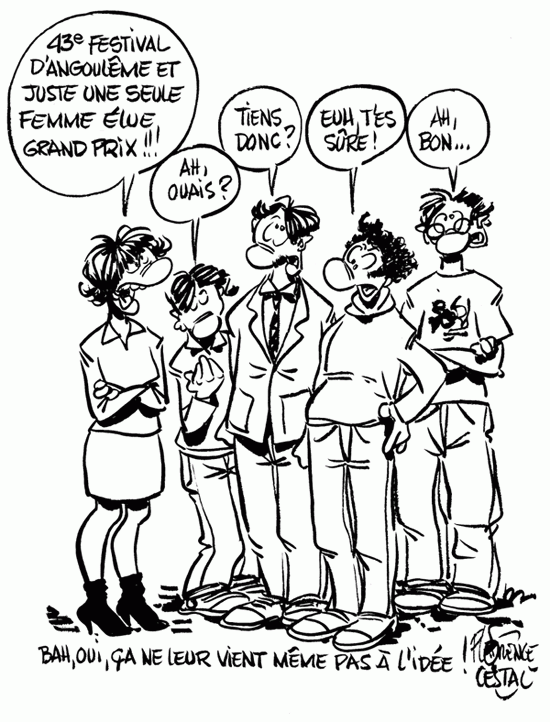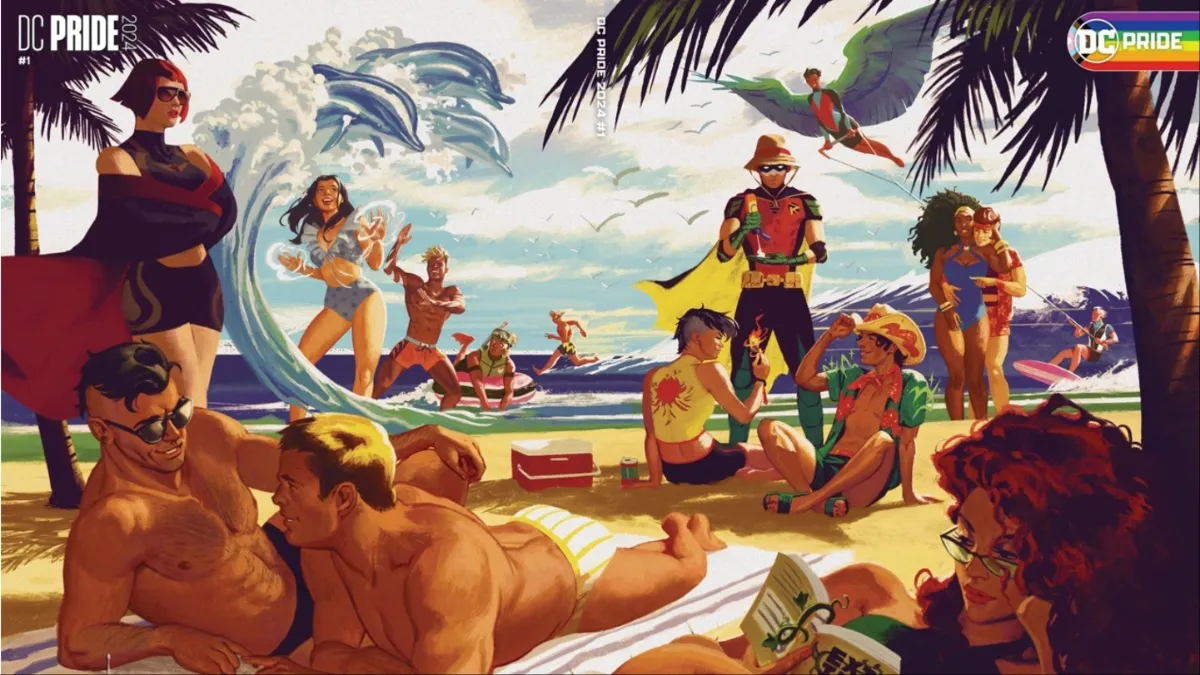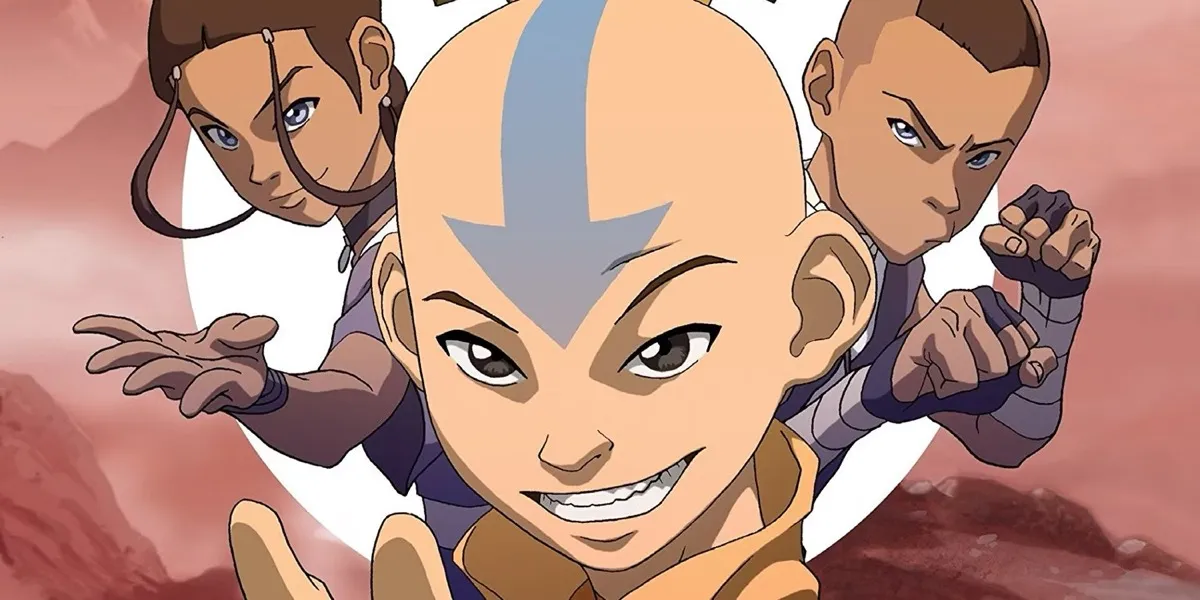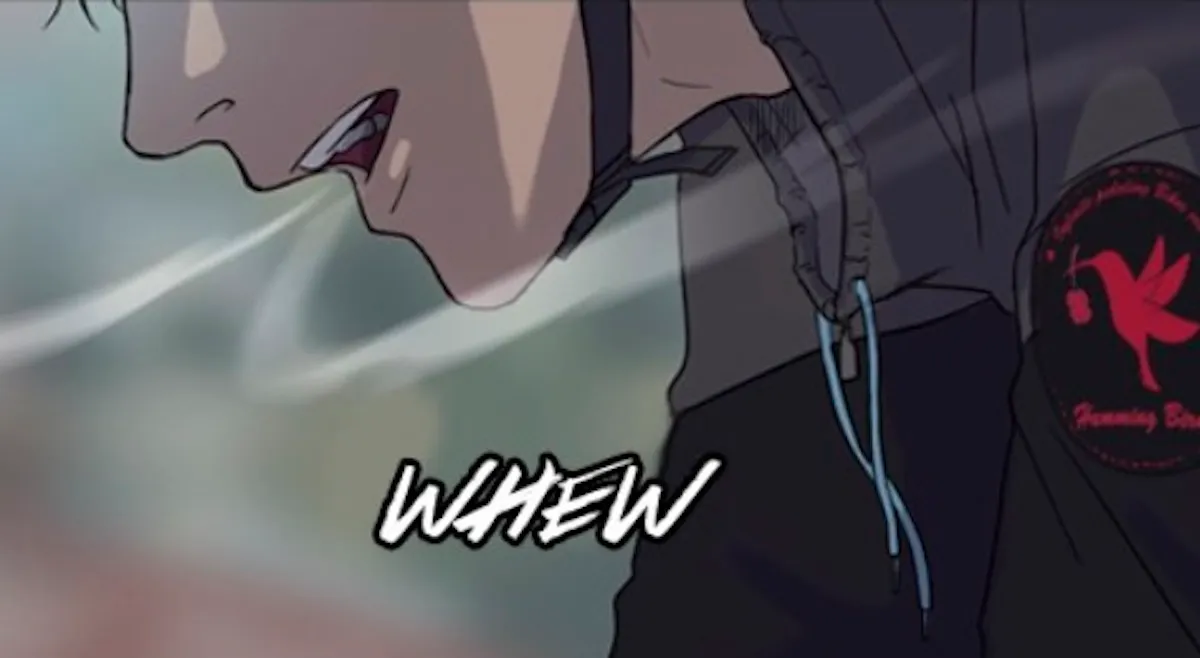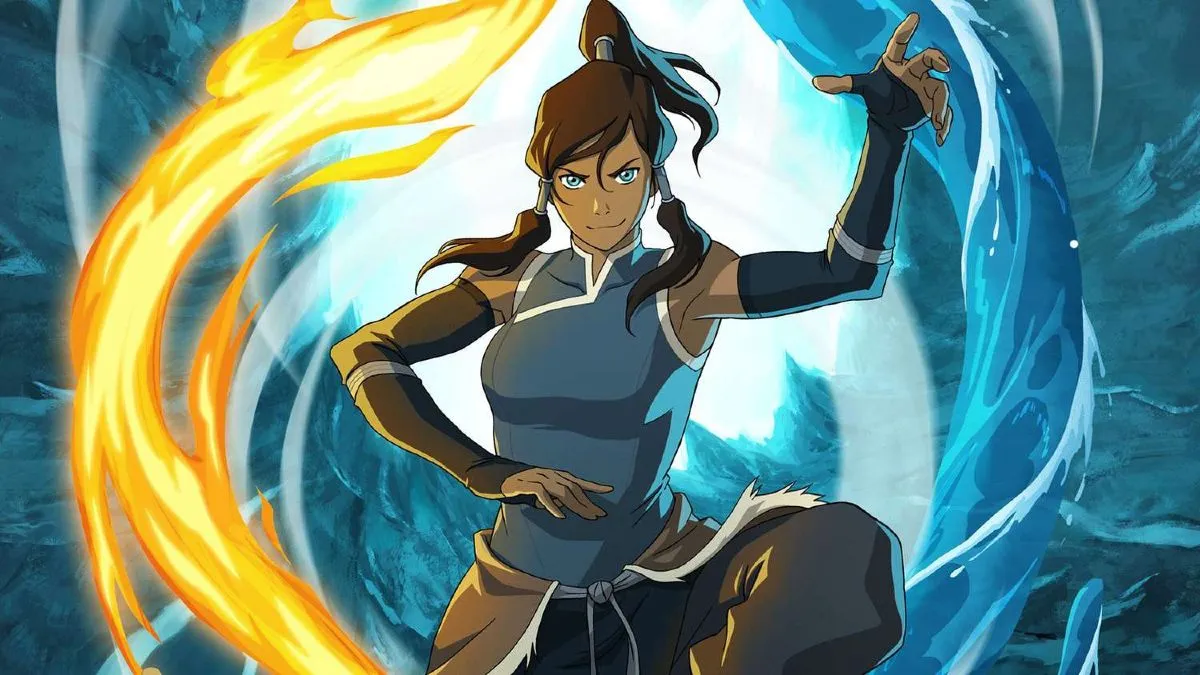The Angoulême Grand Prix offers a lifetime achievement award for comic book creators — and this year, in their initial list of 30 nominations, not a single woman’s name appeared. After the announcement of the nominees, European advocacy group BD Égalité called for a boycott of the Grand Prix 2016. Artist Florence Cestac, whose own illustrated commentary on the situation is pictured above, is the only female winner of this prize in the past 43 years of its existence; she won back in 2000.
If you don’t speak French, Cestac’s comic depicts a woman pointing out to several men that in 43 years, only one woman has ever been recognized with this honor. The men shrug and hem and haw and “gosh, really?” in response. The caption says, “Of course, this idea has not even occurred to them.”
Since yesterday, 12 of the men nominated for the award have withdrawn their names from consideration, in support of the boycott: Brian Michael Bendis, Christophe Blain, François Bourgeon, Charles Burns, Pierre Christin, Daniel Clowes, Etienne Davodeau, Milo Manara, Riad Sattouf, Joann Sfar, Bill Sienkiewicz, and Chris Ware.
In response, the Grand Prix has added two women to its lineup: Marjane Satrapi and Posy Simmonds, both of whom had been nominated in previous years. The Grand Prix’s statement, however, points out that these two women “received very few votes and came in last.” They also write, “The Festival can not remake the history of comics,” and that “positive discrimination” would have “no meaning in the arts.” Essentially, they are kicking the ball down the road here — they don’t want to take responsibility for the history of structural biases in comics as an industry, and don’t see why they’re being held accountable for that “history.”
This sort of argument comes up a lot, seems like. We talked about it recently with regard to the #OscarsSoWhite hashtag, which could well return this year, given the continued whiteness of the nominees. We talked about it with regard to the nominees for the Game Awards. I wrote about it on a smaller scale with regard to hiring for more diverse writers’ rooms on TV shows. It seems as though the same sorts of arguments come back around in each case: do you want us to lower our standards? Do you want quotas? Are you asking for affirmative action? Are you saying that the people who’ve succeeded are not talented, or that they don’t deserve it? Are you asking us to hire unqualified minorities?
The people who get nominated, and who get hired, and who get accolades, are allegedly the best and brightest and most deserving of the honor. It is just some sort of strange coincidence that the artists and creators and comedians whose work most often gets these accolades happen to be predominantly white, and very often also straight, and more often than not men. If the people who succeed in the arts just so happen to be white and straight and cis and male, and if everyone truly believes that the system is a fair meritocracy, then … I guess marginalized people are inherently inferior at all of these things? Ah, but that would be outright bigotry. Wouldn’t want to cop to that, huh. And yet that’s exactly what these arguments imply!
Institutional sexism and racism, as well as the unconscious biases that play a role in everything from hiring to education to career paths, make it so that not everybody has equal opportunity. In spite of this, many marginalized people manage to succeed in their creative careers, against stacked odds. Perhaps their careers are not as highly visible; perhaps they burn out faster due to external pressures. But that doesn’t mean they don’t exist. They do exist, and they do work hard, and their efforts should be recognized and highlighted accordingly — even if their work is not as visible and well-known and easy to find. They should be highlighted because their work is harder to find and less appreciated, if anything.
Awards shows are pretty much the bastion of institutional power — they tend to honor the names you’ve already heard before. Still, they serve as a representation for how far we’ve come (or haven’t) when it comes to earning mainstream respectability and inclusion in the arts. It’s worth something to be respected and supported by your peers — and by choosing to join this boycott, several comics creators have shown that they do respect their peers, even if this institution doesn’t. That’s something, I guess.
(via Comics Alliance, image via BD Égalité)
—Please make note of The Mary Sue’s general comment policy.—
Do you follow The Mary Sue on Twitter, Facebook, Tumblr, Pinterest, & Google +?



